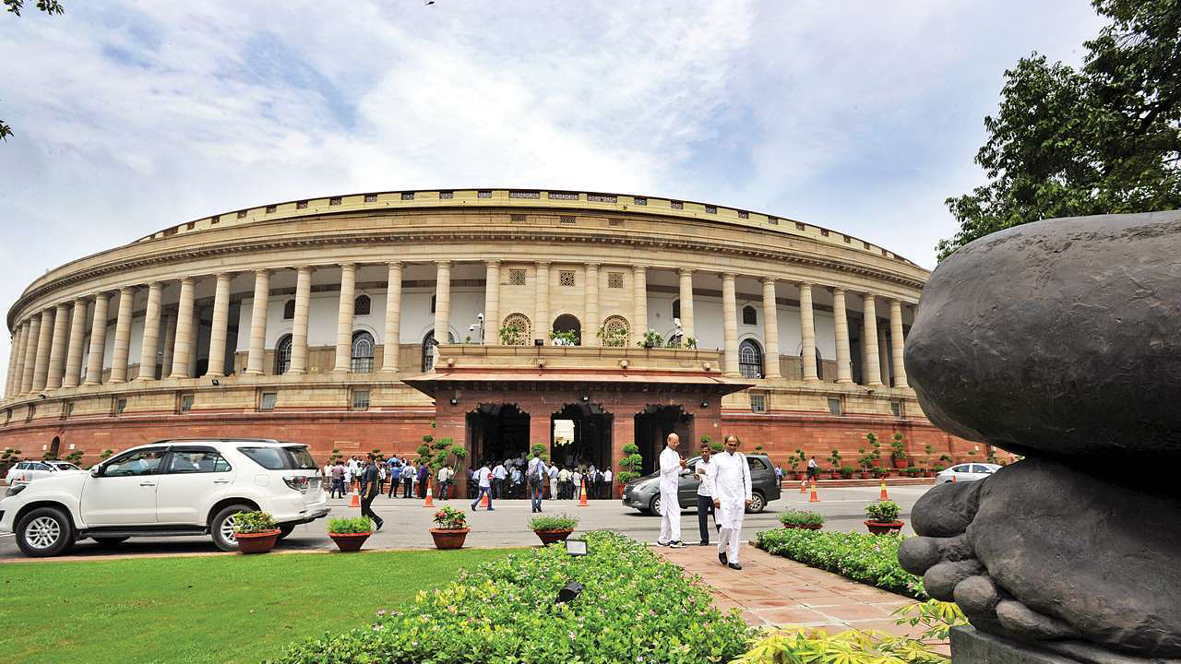Kalyani Shankar
Has the Indian Parliament lost its relevance? Has the Opposition failed to perform their duties of holding the Government accountable? Has the Government been stubborn and not reaching out to the Opposition? The answer to all these questions is a grand “YES” as of now. There is confrontation and not compromise from all sides with the result there is no solution to the present standoff.
To preserve India as a democratic country, the Parliament needs to function more actively in framing bills, scrutiny, and holding sessions. But sadly, it is more of disruptions than discussion and debate on issues about public importance. Shorter Parliamentary sessions and leniency in the scrutiny of the Bills have indeed diminished the efficiency of the Parliament.
The current Monsoon session is almost a washout as neither debate nor bills were discussed and passed. Prime Minister Narendra Modi was critical of the Opposition last week for not allowing the Parliament to function. During a BJP Parliamentary party meeting, Modi called the Opposition’s behaviour “”an insult”” to Parliament, the Constitution, democracy, and the public. This is because the government could not push through much of the business. The Opposition demanded a debate on the Pegasus snooping, farmers issues and price rise. Though the government claimed it was ready to discuss any case, they could not agree on the time and day. The standoff continues with no sign of compromise.
It is not for the first time that no business has been transacted for weeks. It is not for the first time when the entire session appears to be washed out. The BJP, which had played the role of Opposition for a much longer time than any other national party, knows this better as they did all these when they were in Opposition.
Democracy demands that executive decisions require to be subjected to Parliament scrutiny. However, this process is absent now as Parliament gets adjourned many times in a day. Politics makes lawmakers fail in their duty to discuss and debate bills. They are called the lawmakers but they are not serious about finding out flaws in legislation. Noisy scenes, fistfights, and tearing of papers by the Opposition have become a common feature in both houses. The government, too, wants to get the bills passed amidst din and noise.
In fact, we see almost the same headlines at the close of every Parliament session in the past two decades. People are getting disenchanted with the MPs for their non-performance. However, some new Members who have come to Parliament with great hope of becoming a good parliamentarian are disappointed with the frequent adjournments and non-functioning of the House. Some could not even make their maiden speeches.
What are the functions and duties of an elected Member? There are four essential functions:- budget scrutiny, protecting the interests of the constituents, function as a watchdo over the government and above all making laws.
Does the parliament needs more time? Both the houses sit for an average of 67 days annually. Compare this to the first, second and third Lok Sabha (1952- 1967), when it sat for an average of 120 days annually. Now the time of functioning has reduced by half. The National Commission to Review, the Working of the Constitution, recommended that Lok Sabha should have at least 120 sittings in a year. In comparison, Rajya Sabha should have 100 sittings. Parliament could work for only 34 days since the pandemic hit the country in March last year. The winter session had to be cancelled, while three others were cut short.
Traditionally, parliamentary committees function on a non-party basis. Of late, members have started political posturing. The committee members are both from Lok Sabha and Rajya Sabha. They scrutinise policies and bills and seek expert advice. Even they gradually are having a decreasing role. There have been several instances of confrontation on party lines. Latest is te deadlock in the committee on Information technology electronics on Pegasus issue
Since 1952, the rules required M.P.s not to interrupt the speech of others, maintain silence and not obstruct proceedings during debates. Newer forms of protest led to the updating of these rules in 1989. Accordingly, now members should not shout slogans, display placards, tear away documents in protest, play cassettes or tape recorders in the House. In practice, they disobey all these rules.
The primary point is that members from both sides should aim to perform as a good parliamentarians. Disruptions can’t be the goal. Elected MPs should discuss people’s problems as their chosen representatives.
There have been many suggestions that a concept of no work no pay should be adopted for members. But this would affect only members who depend on their salary. There is also a suggestion to embrace the shadow cabinet model prevalent in the U.K. But it is for the political parties to ensure responsible behaviour of their member be it the opposition or the ruling party. Dialogue is the only way to resolve any issue as has been proved. Wasting the tax payer’s money is no answer. (IPA)
Trending Now
E-Paper


